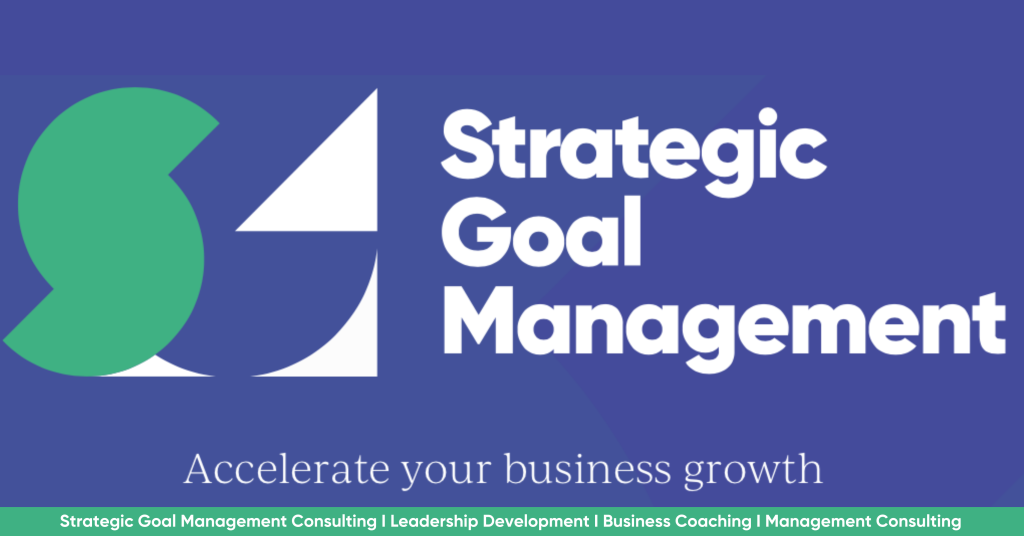
Leadership Skills for Business Success. Taking on a leadership role in business requires more than just ambition and experience. To successfully lead an organisation, you must possess the right skills to navigate the journey effectively. Strategic Goal Management can help you learn how to be effective by developing the necessary leadership skills for success.
Leadership Skills: Know your Team and Apply Situational Leadership

Leaders should seek to understand the strengths and weaknesses of their team members as a priority. To understand your team members, you must develop a clear picture of who they are and what value they bring to the company. Doing so will help you assign tasks more effectively to the right person. Situational leadership can help you in this regard because it supports various team members with appropriate guidance or supervision. Business leaders and managers who practice this type of leadership change their management style based on the individual’s ability and maturity in the organisation. For example, if tasking a director, you should be reasonably confident that you can delegate an important task. However, for a junior staff member, you may have to consider increased supervision or even coaching.
The need for additional staff support can be identified by conducting a training needs analysis. The goal is to identify where training is required and valuable training opportunities that could benefit both the individual and the business. As a leader, it’s also essential to provide relevant feedback to motivate team members and help them reach their full potential.
Leadership Skills: Communicate Your Vision Clearly & Consistently

As a leader, it’s essential to communicate your company’s overall mission, vision and values clearly and consistently. Doing so helps keep everyone on track towards achieving the strategic goals and will help leaders shape the business’s organisational culture. Avoid vague statements and use SMART objectives that are easy to understand and can link strategic goals to departmental targets and employee appraisals. Furthermore, any changes to business plans must be communicated by leadership immediately, so staff have time to adjust if needed.
Leadership Skills: Practice Listening Skills and Empathy

Developing practical listening skills is a crucial part of leadership. As a leader, it’s only natural to have your own opinions and preferences, but that doesn’t mean you should disregard the views of your team members. Listen to your team members and understand their feelings about specific tasks and projects; this will help build trust and show them that their ideas matter. Try to be empathetic, putting yourself in their shoes so you can come up with the best solutions. Listening doesn’t just show that you value your team members’ opinions but can also help keep communication open and transparent. Understanding their issues allows you to think together about strategies and develop more effective solutions. Ultimately, an open line of communication between the leader and their team can be beneficial for the overall success of a business.
Leadership Skills: Make Decisions with Confidence

Being a good leader isn’t easy, but it is essential for success. The best leaders dare to take calculated risks, requiring confidence in their decision-making ability. Building solid relationships with colleagues and developing a positive environment encourages others to support your decisions and provide emotional support when you make difficult choices. Demonstrating that you have the confidence to make proactive decisions with conviction is critical for any successful business leader.
Successful leaders are not only able to make decisions quickly but also have the courage and confidence to stand by those decisions. A quick guide to effective decision-making:
- Link decisions to the company’s strategic goals; if your decision does not positively impact them, change it.
- Work to stay informed about your business’s current situations so that you can quickly make effective decisions.
- Make sure you’re prepared for any potential risks that may come with those decisions, and be ready to explain your choices if necessary.
- Believe in yourself and have faith in your decision-making process and trust it.
- Consult business stakeholders that may have more information that will aid you.
Leadership Skills: Invite Creative Input and Encourage Innovation

Creative input from employees is essential in developing effective leadership. Inviting input can be helpful to encourage innovation, as well as foster trust between leader and employee. Create a forum where employees feel safe to voice their ideas and concerns to get the most out of the open dialogue; showing employees that their ideas matter builds loyalty, leading to increased effectiveness in team efforts.
Influential leaders must stay ahead of industry trends and changes and plan strategically. Don’t hesitate to call on your team to keep you informed, and be open to new ideas or processes when appropriate. Doing so encourages employees to think outside the box and take the initiative. Open creative opportunities for employees to think together about new products, projects, ways of working, or even marketing strategies. Frequently these bright ambitions will foster innovation and result in exciting projects that have the potential to benefit your business positively.
Leadership Development Training

In the past, most people thought a good leader knew how to work hard and finish their tasks. But today, we know there is more to leading others than just getting things done yourself. Many factors contribute towards leadership skills, including:
- Effective communication
- Strategic planning
- Delegation
- Risk Management
- Motivation
- Decision-making
- Shaping organisational culture
- Conflict resolution
- Stakeholder Management
If you have enjoyed this article and want to learn more about how we can develop your leadership skills through one of our tailored leadership or coaching programmes, please get contact us.
Pingback: What is Business Consulting? - Strategic Goal Management